Foreign News
Bolivian president thanks people after facing down failed coup attempt
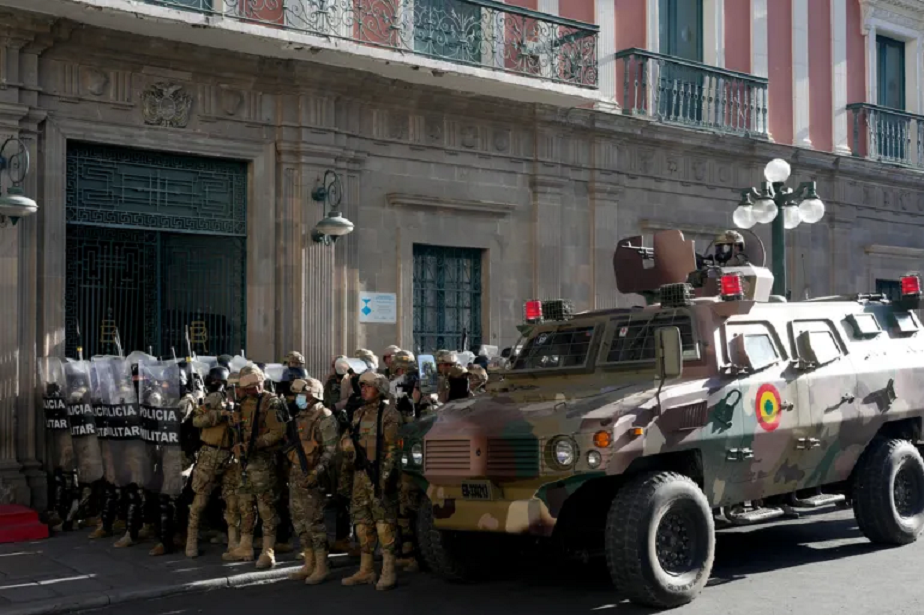
Amid international outcry, an apparent coup attempt in Bolivia has subsided, with President Luis Arce asserting his authority over the country’s military.
Earlier, on Wednesday afternoon, troops led by army general commander Juan Jose Zuniga had stormed the presidential palace and taken up positions in the square outside. News reports indicated a tank slammed the palace doors.
But within hours, Zuniga urged the soldiers to withdraw, after leaders from around the world blasted the army’s actions as illegal.
President Arce hailed the withdrawal as a victory for Bolivia’s democracy and addressed the country’s citizens in the aftermath, some of whom had taken to the streets in protest of the alleged coup attempt. “Many thanks to the Bolivian people,” said Arce. “Long live democracy.”
Dramatic footage on Bolivian television showed Arce facing down Zuniga and a group of soldiers in a palace hallway on Wednesday. “I am your captain, and I order you to withdraw your soldiers, and I will not allow this insubordination,” Arce said.
The news agency Reuters reported that Zuniga was ultimately arrested.

Since taking office in 2020, President Arce has led an embattled government, fending off pressure from both the left and the right.
Under his leadership, right-wing forces in provinces like Santa Cruz have led deadly strikes against measures they believe are designed to keep them from power. Just last year, a prominent opposition leader, Luis Fernando Camacho, was arrested for his alleged role in 2019’s political arrest.
And on the left, President Arce faces push-back from his former political mentor, ex-President Evo Morales, who has declared his intention to replace Arce in the 2025 presidential race.
Adding to the political turmoil has been nationwide fuel shortages and a financial crisis that has seen its currency reserves crater.
“The president of the country is in a bit of a problem, in the sense that he’s got low approval ratings. The last one in March, he was at 38 percent. The economy’s not doing well at all. And he’s also involved in a protracted battle with Evo Morales, the ex-president of the country,” explained Al Jazeera correspondent John Holman. “So this is a difficult time for President Luis Arce.”
Zuniga was Arce’s hand-picked leader for Bolivia’s military. But as he entered the presidential palace on Wednesday, Zuniga cited the malaise in the country as a motivation.
“The three chiefs of the armed forces have come to express our dismay. There will be a new cabinet of ministers. Surely things will change, but our country cannot continue like this any longer,” Zuniga told a local TV station. “Stop destroying, stop impoverishing our country, stop humiliating our army.”
The general added that he would continue to recognise Arce as the commander-in-chief “for now”. But he explained that his aim was to “restore democracy” and “free political prisoners”.
Local media reports indicated that Arce had stripped Zuniga of his role atop the country’s military earlier in the week, fuelling tensions between the two leaders.

But as armed soldiers and armoured vehicles filled the Plaza Murillo in the centre of the capital La Paz, the backlash came swiftly.
The country’s largest labour union announced an indefinite strike in defence of Arce’s government. Videos circulating on social media appear to show crowds of people chasing away pro-coup forces.
Former President Morales also denounced the military’s actions, calling for criminal prosecution against Zuniga and anyone who helped him. “We will not allow the armed forces to violate democracy and intimidate people,” he said.
Even the right-wing leader who replaced Morales, former President Jeanine Anez, rejected the military’s advances.
“Total repudiation of the military mobilisation in the Plaza Murillo, attempting to destroy the constitutional order,” she wrote on the social media platform X, adding that Arce “must leave through the vote in 2025”.
From the presidential palace, Arce broadcast a video presenting a united front, standing alongside all his ministers. He pledged to “confront any attempt that threatens our democracy”.
“To the Bolivian people and the entire international community, our country today is facing an attempted coup d’etat,” Arce said in the video.
“The Bolivian people are called today. We need the Bolivian people to organise and mobilise against the coup d’etat in favour of democracy. We cannot allow once again coup attempts to take Bolivian lives.”
Wednesday’s scenes brought alarm to the Andean nation, where ex-President Morales has long maintained he was removed from office in a 2019 coup after he ran for a fourth term in office.
Bolivia has had a long history of political unrest since it gained independence in 1825. Kathryn Ledebur of the Andean Information Network said of all the South American nations, Bolivia is considered the one that has experienced the most coups.
“But it enjoyed a very long period of democracy until the 2019 coup,” she explained in an interview with Al Jazeera. “I think it’s very important to remember that Bolivia had an illegal government with the support of the military and a coup in 2019.”
That, she said, has fed scepticism among the public towards the armed forces, something reflected on the streets of La Paz on Wednesday. “The military has a bad reputation,” Ledebur said.
While she acknowledged some military officers were charged with crimes, the institution itself “didn’t receive significant legal consequences or any sort of punishment or restructuring after this very anti-democratic activity in 2019 and 2020”.
Wednesday’s actions, however, send a strong signal about the continued threat that the military may pose, Ledebur added. “It’s a very very clear sign that the army is not firmly entrenched in democracy, nor the rest of the armed forces.”
Photos from The Associated Press showed soldiers clearing away journalists near the presidential palace during the alleged coup.
Ultimately, President Arce replaced General Zuniga with Jose Wilson Sanchez, who ordered all mobilised troops to return to their barracks.
“No one wants the images we’re seeing in the streets,” Wilson Sanchez said. The public prosecutor’s office said it will open a criminal investigation into those behind the failed attempt against the government.

As images of the alleged coup started to circulate across the globe, world leaders from countries like Brazil, Mexico and Colombia expressed alarm and denounced what they considered an attack on democracy.
“We express the strongest condemnation of the attempted coup d’etat in Bolivia,” said Mexican President Andres Manuel Lopez Obrador, a popular left-wing leader.
Honduran President Xiomara Castro, meanwhile, called the mobilisation a “criminal coup d’etat”. Gabriel Boric, the president of the neighbouring country of Chile, issued his own statement: “We cannot tolerate any breach of the legitimate constitutional order in Bolivia or anywhere else.”
But the condemnation stretched well beyond Latin America. A White House spokesperson said the United States “urges calm and restraint”. European Union foreign policy chief Josep Borrell said his organisation “expresses its solidarity with the Bolivian government and people”.
The Organization of American States (OAS) – an international group comprised of 32 member states – also weighed in with an appeal to the military.
“We condemned the events in Bolivia. The army must submit itself to the legitimately elected civil power,” OAS leader Luis Almagro said while the turmoil unfolded.
Holman, the Al Jazeera correspondent, warned that the outpouring of support did not mean that President Arce’s troubles were over.
As General Zuniga was arrested, Holman explained that the military leader made unverified allegations that this apparent coup was organised by Arce himself to boost his dismal approval ratings.
“For now, stability of a sort returns,” Holman said. “It’s a really difficult, combustible situation right now in a country that has become deeply divided and polarised. The fact that whatever happened this afternoon has ended isn’t going to take away the explosive nature from the country.”

[Aljazeera]
Foreign News
Iraq sandstorm leaves many with breathing problems
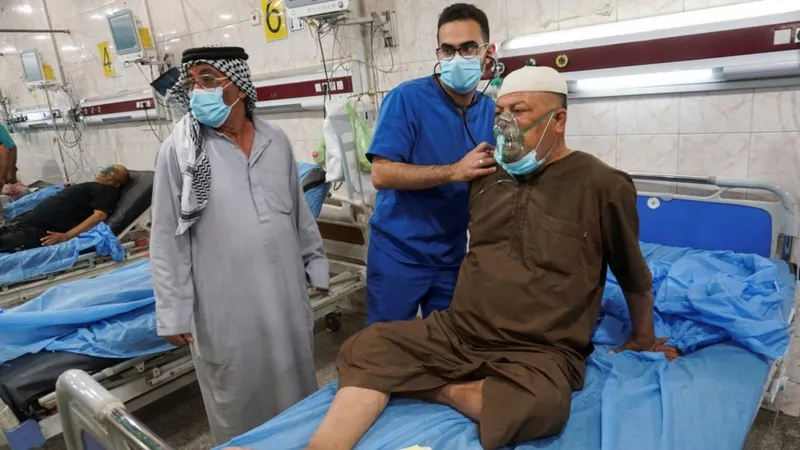
More than a thousand people have been left with respiratory problems after a sandstorm swept across Iraq’s central and southern parts of the country, health officials said.
One official in Muthanna province reported to the AFP news agency at least 700 cases of what they said was suffocation.
Footage shared online showed areas cloaked in a thick orange haze, with local media reporting power cuts and the suspension of flights in a number of regions.
Dust storms are common in Iraq, but some experts believe they are becoming more frequent due to climate change.
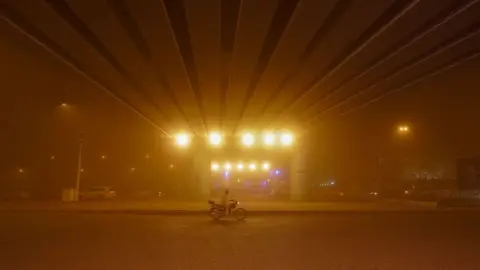
Pedestrians and police wore face masks to protect themselves from the dust and paramedics were on site to assist people with difficulty breathing, according to AFP.
Hospitals in Muthanna province in southern Iraq received at least “700 cases of suffocation”, a local health official said.
More than 250 people were taken to hospital in Najaf province, and at least 322 patients including children were sent to hospitals in Diwaniyah province.
A further 530 people reported breathing issues in Dhi Qar and Basra provinces.
The sandstorm blanketed Iraq’s southern provinces in an orange cloud that reduced visibility to less than one kilometre (0.62 mile).
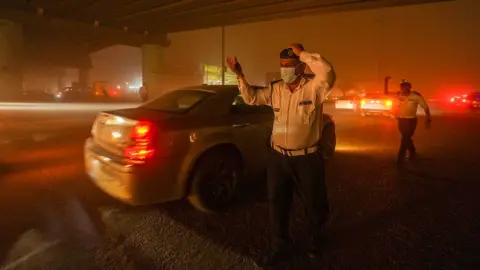
The authorities were forced to shut down airports in the provinces of Najaf and Basra.
Conditions are expected to gradually improve by Tuesday morning, according to local weather services.
Iraq is listed by the UN as one of the five countries most vulnerable to climate change as it encounters regular sandstorms, sweltering heat and water scarcity.
A severe sandstorm in 2022 left one person dead and more than 5,000 needing treatment for respiratory illnesses.
Iraq will be experiencing more “dust days” in the future, according to its environment ministry.
[BBC]
Foreign News
Indian billionaire jeweller Mehul Choksi arrested in Belgium
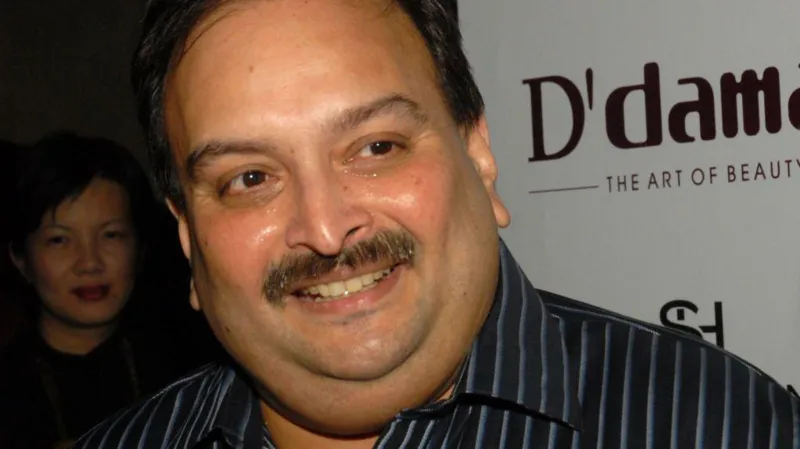
Indian businessman Mehul Choksi has been arrested in Belgium following India’s request for his extradition.
Choksi, who left India in 2018, was arrested on Saturday, his lawyer Vijay Aggarwal told the BBC on Monday.
The diamond merchant is wanted by India for allegedly defrauding one of the country’s largest banks of nearly $1.8bn (£1.3bn).
Choksi has not commented publicly on the case, but his lawyer said they would appeal against his detention and also oppose his extradition to India.
“These are the obvious grounds on which we will argue the case, that he is not a flight risk and secondly, that he is extremely sick. He is undergoing cancer treatment,” Mr Agarwal said. He added that they would “contest the extradition on grounds that there isn’t enough evidence against him and the extradition request is politically motivated and the trial in India may not be fair”.
The BBC has reached out to India’s foreign ministry and financial crimes agency – the Enforcement Directorate (ED) – for comment.
According to a Times of India report, Choksi was arrested on the basis of two non-bailable warrants issued by an Indian court in 2018 and 2021 – although it’s not clear why the action came now.
Mehul Choksi and his nephew, Nirav Modi, are wanted by Indian authorities in connection with a $1.8bn fraud case at Punjab National Bank (PNB).
Niray Modi, who’s also been living abroad since 2018, is lodged in a prison in London and is awaiting extradition to India.
Both were high-profile diamond traders. Modi’s jewellery was worn by several Hollywood celebrities such as Naomi Watts and Kate Winslet. One of the biggest Bollywood stars, Priyanka Chopra, was his company’s brand ambassador. Choksi, meanwhile, was the owner of Gitanjali Gems, an Indian jewellery retailer which once had about 4,000 stores across India.
The ED has accused Choksi and Modi of colluding with some employees of PNB’s Brady House branch in Mumbai city to get fraudulent advances for payments to overseas suppliers of jewels.
These funds were then allegedly diverted and laundered.
Choksi and Modi have denied the allegations against them.
After leaving India, Choksi reportedly travelled to the US and later to Antigua – where he has citizenship. In 2021, he was reportedly arrested in Dominica and deported back to Antigua.
Hariprasad SV, a Bengaluru-based entrepreneur who had in 2016 alerted authorities about the alleged scam at PNB, said Choksi’s arrest was “great news”. “Apart from bringing him back, the most important thing is to get back all those billions of dollars he looted from India,” he told ANI news agency.
[BBC]
Foreign News
Trump exempts smartphones and computers from new tariffs
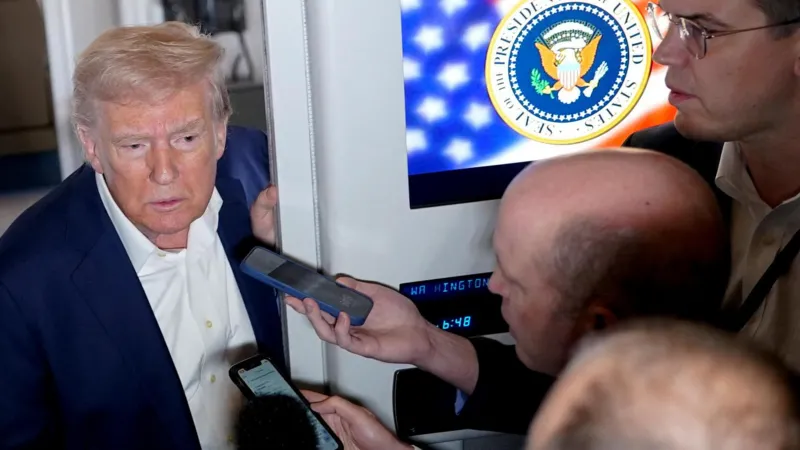
US President Donald Trump’s administration has exempted smartphones, computers and some other electronic devices from “reciprocal” tariffs, including the 125% levies imposed on Chinese imports.
US Customs and Border Patrol published a notice late on Friday explaining the goods would be excluded from Trump’s 10% global tariff on most countries and the much larger Chinese import tax.
The move comes after concerns from US tech companies that the price of gadgets could skyrocket, as many of them are made in China.
This is the first significant reprieve of any kind in Trump’s tariffs on China, with one trade analyst describing it as a “game-changer scenario”.
[BBC]
-

 News4 days ago
News4 days agoSuspect injured in police shooting hospitalised
-

 Features5 days ago
Features5 days agoRobbers and Wreckers
-

 Features7 days ago
Features7 days agoSri Lanka’s Foreign Policy amid Geopolitical Transformations: 1990-2024 – Part III
-

 Midweek Review7 days ago
Midweek Review7 days agoInequality is killing the Middle Class
-

 Business4 days ago
Business4 days agoSanjiv Hulugalle appointed CEO and General Manager of Cinnamon Life at City of Dreams Sri Lanka
-

 Business6 days ago
Business6 days agoNational Anti-Corruption Action Plan launched with focus on economic recovery
-

 Features3 days ago
Features3 days agoLiberation Day tariffs chaos could cause permanent damage to US economy, amid global tensions
-
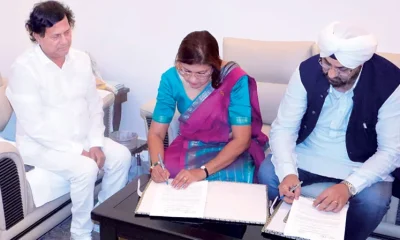
 News7 days ago
News7 days agoIChemC signs MoU with KIIT, India











